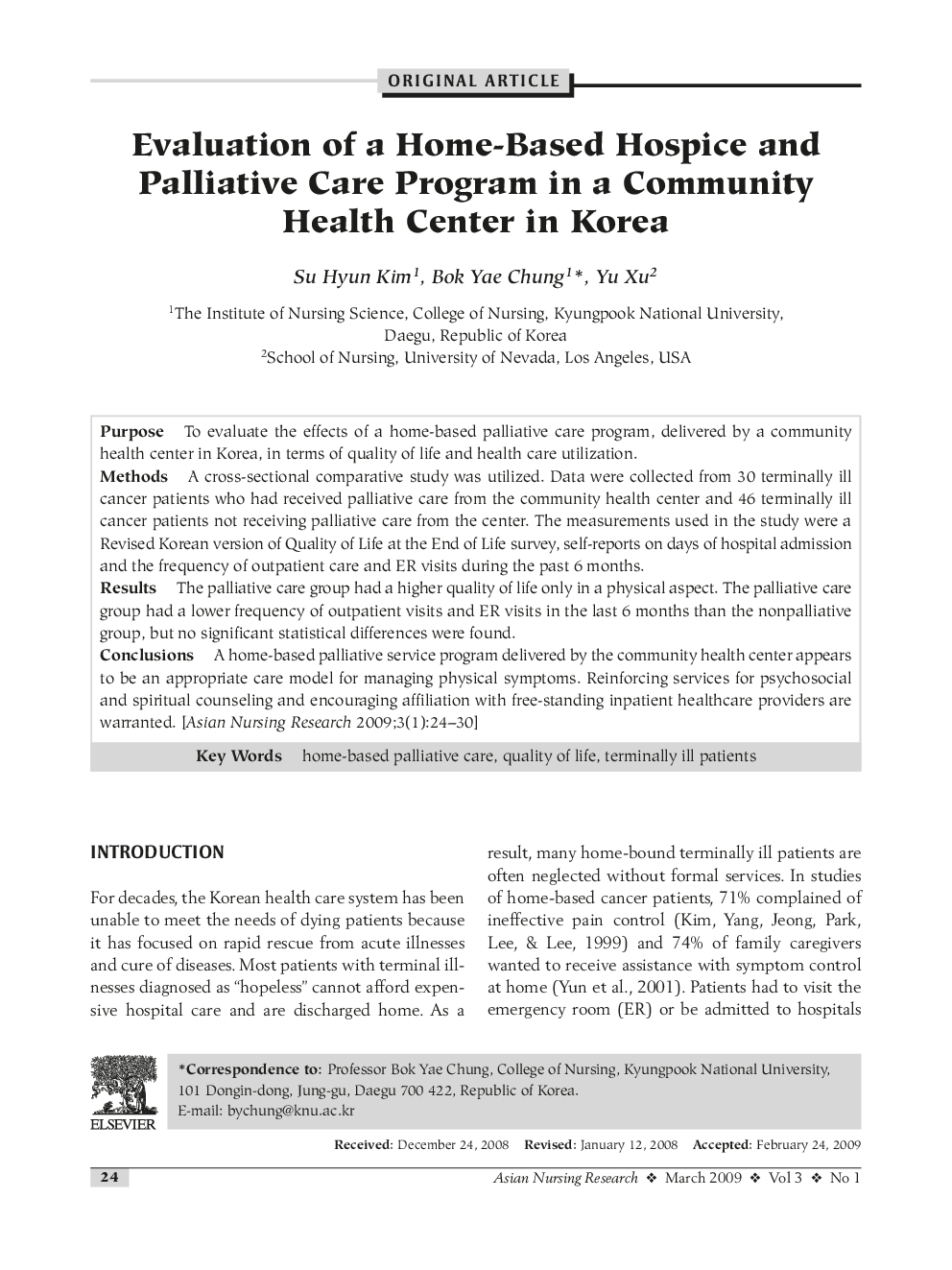| Article ID | Journal | Published Year | Pages | File Type |
|---|---|---|---|---|
| 2645253 | Asian Nursing Research | 2009 | 7 Pages |
PurposeTo evaluate the effects of a home-based palliative care program, delivered by a community health center in Korea, in terms of quality of life and health care utilization.MethodsA cross-sectional comparative study was utilized. Data were collected from 30 terminally ill cancer patients who had received palliative care from the community health center and 46 terminally ill cancer patients not receiving palliative care from the center. The measurements used in the study were a Revised Korean version of Quality of Life at the End of Life survey, self-reports on days of hospital admission and the frequency of outpatient care and ER visits during the past 6 months.ResultsThe palliative care group had a higher quality of life only in a physical aspect. The palliative care group had a lower frequency of outpatient visits and ER visits in the last 6 months than the nonpalliative group, but no significant statistical differences were found.ConclusionsA home-based palliative service program delivered by the community health center appears to be an appropriate care model for managing physical symptoms. Reinforcing services for psychosocial and spiritual counseling and encouraging affiliation with free-standing inpatient healthcare providers are warranted. [Asian Nursing Research 2009;3(1):24–30]
